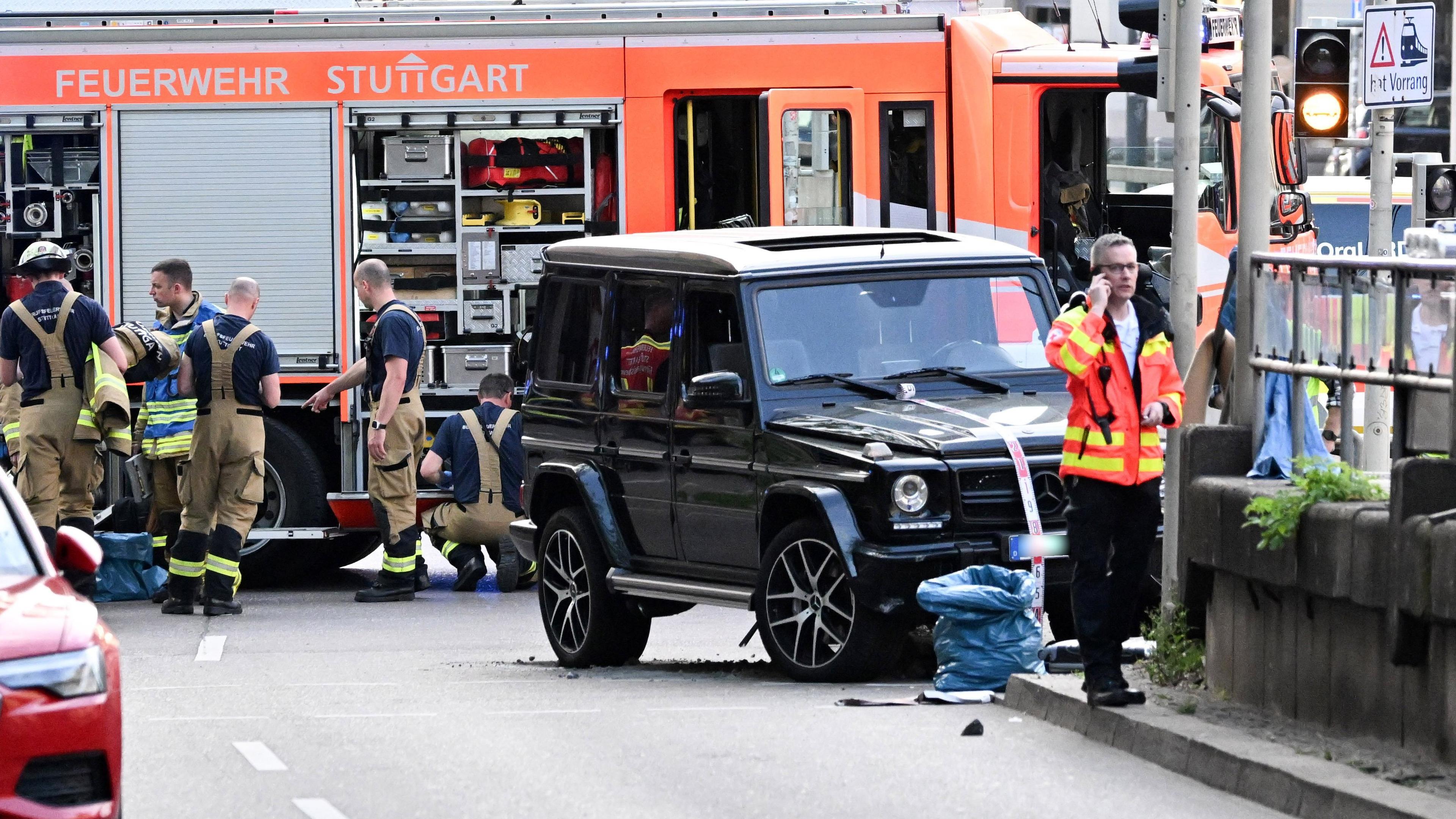The call to prohibit the right-wing extremist AfD is getting louder and louder, but there is also a lot of resistance to such a ban
/s3/static.nrc.nl/images/gn4/stripped/data131701481-904e85.jpg|https://images.nrc.nl/CovqCTnPyXCOylffIgmoZGF44ak=/1920x/filters:no_upscale()/s3/static.nrc.nl/images/gn4/stripped/data131701481-904e85.jpg|https://images.nrc.nl/jDpfdy5baplGvPerHaVxzIky2uE=/5760x/filters:no_upscale()/s3/static.nrc.nl/images/gn4/stripped/data131701481-904e85.jpg)
In more than eleven hundred pages, the German National Security Service explained on Friday that the German party Alternative Für Deutschland (AFD) is right-wing extremist. According to the report, the views of the AfD about who German citizens are and the exclusion of certain population groups were the deciding factor: the views of the AfD are contrary to free democracy. But what exactly does such categorization mean for our neighboring country?
1. What are the reactions in Germany?
The new labeling for AfD is not a shock in Germany for many. « Is the AfD extreme right? Oh really? So you can say that sarcastically, » writes politics journalist Roland Preuss in An opinion piece for the Süddeutsche Zeitung. « The self -radicalization of the party took place for everyone’s eyes, » said journalist Severin Weiland for Der Spiegel.
The decision is therefore no surprise. AfD was already considered ‘possibly right-wing extension’, several regional branches of the party had already been mentioned right-wing extension and that stamp also received the youth branch (of which the AfD later renounced).
Even for German politicians, the decision does not come out of the blue. For many, it confirms the importance of the so -called Brandmaw (fire wall), the Cordon sanitaire around the Department. For years that wall has been stagging and then CDU last January with the support of ADD a motion for a stricter asylum policy Was there a possible break. « The Brandmawer is still standing, » responded Markus Söder, the party leader of the Bavarian branch of the Christian Democrats, the CSU, in a message on X on the decision. « This is a last wake-up call, » said Söder. Other parties also state that the AfD must now be seen as a threat to democracy. Der Spiegel said that Linke-Politics Clara Bünger Not wanting to allow « AfD Democratic means to abolish democracy itself. »
The AfD itself says that the decision of the security service is ‘politically motivated’. In A statement on the website Name AFD party chairmen Alice Weidel and Tino Chrupalla The judgment of the Security Service on Friday a « heavy blow » for democracy. They say they want to challenge the decision.
2. How did you respond from abroad?
In general, the new labeling mainly causes reactions in Germany itself, with one exception: the United States. Both the American vice president, JD Vance and the foreign minister Marco Rubio responded critically to the German decision. That’s how Rubio called the « disguised tyranny. » According to Vance, bureaucrats try to destroy the AfD. « The West has jointly demolished the Berlin Wall. And now it has been rebuilt – not by the Soviets or the Russians, but by the German establishment, » said Vance on X.
The German government responded fiercely on Rubio’s comment. « This is democracy. This decision is the result of a thorough and independent investigation to protect our Constitution and the rule of law. Independent courts will have the last word, » said the Ministry of Foreign Affairs on X. « We have learned through our history that right-wing extremism should be stopped. »
3. Does this now lead to a ban on the AfD?
The decision does not lead to an automatic ban. The debate about such a ban, however, flares up again in German politics and society. So headed the German TV program Tageschau On the website Friday evening that « the call on a AfD ban is getting louder and louder. »
To ban the AfD, various bodies, such as the federal government, the Federal Council and the Bundestag can submit a request. Ultimately, only the Constitutional Court can actually impose an actual prohibition. A party can be prohibited if it strives for unconstitutional objectives, she does this in an aggressive way and if the party is politically dangerous by being successful in elections. The unconstitutional objectives of the AfD have since been confirmed by the security service.
Although several politicians are now calling to submit a request, others are more reserved. For example, Chancellor Olaf Scholz (SDP) said that a prohibition should be ‘not rushed’. This would not be the first time that politicians are trying to ban the party. In the past, several motions were submitted in the past day, but they never achieved a majority.
Photo Jens Schlueter / AFP)
The question is also what the consequences of such a prohibition have in society, given the broad supporters of the party. During the elections in February, more than ten million Germans voted for AfD and they became the second party of Germany. Friedrich Merz, who will play as a new Chancellor on Tuesday, did not respond in recent days. He said Earlier, in January, To be a ban, because that would only strengthen the AfD « in its martyr role ».
4. Does this categorization have other consequences?
In addition to a flawed prohibition debate and noise in the country, the decision also has actual, concrete (legal) consequences for the AfD and its supporters. The activities and financing are under the best supervision, which means that security services may take far -reaching measures to collect information. With the approval of a committee in the Bundestag, the mutual communication of party members may also be monitored.
For German officials, they may no longer be a member of the party, because that is forbidden for organizations that are considered extremist. This can have concrete consequences for, for example, police officers and teachers. According to Bild So far, two German federal states, Hessen and Bavaria want to investigate to what extent the categorization has an influence on AfD members and officials in the public sector. « Our police and our administrative staff must guarantee that they will always maintain our free, democratic constitutional order, » said Hessen Roman Poseck (CDU) inland. The Minister of the Interior in Bavaria also expressed similar views.
Read also
Also read German security service labels AfD as right-wing extremist, debate on prohibition flows on

:format(webp)/s3/static.nrc.nl/wp-content/uploads/2025/05/02113320/web-0205BUI_AFD.jpg)
/s3/static.nrc.nl/wp-content/uploads/2025/05/04025508/ANP-345690016.jpg)
:format(jpeg):fill(f8f8f8,true)/s3/static.nrc.nl/taxonomy/5d179ba-Sparreboom%252C%2520Tessa%25202023%252001%25201280%2520WEB.png)
/s3/static.nrc.nl/wp-content/uploads/2025/05/04013947/ANP-524539790.jpg)



